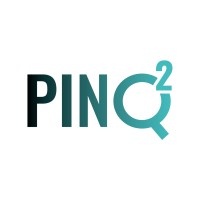
First Nations and Inuit Skills Link Program (Not-for-Profit Sector)
At a glance
- Up to 100% of project cost
- Closing date : July 7, 2025
- Educational services
- Canada
- Non-profit
- Public or Parapublic institution
- For-profit business
- All revenue ranges
- All organization sizes
- Indigenous Peoples
- Youth (<40)
- Primary and Secondary Education
- Research
- Employment and Training
- Children and Youth Organizations
- Diversity and Inclusion
- Children & youth
- Young adults
- Indigenous peoples
- Academia / students
- All structures
- National
Overview
Get a contribution to develop projects to help First Nations and Inuit youth acquire essential employment skills and learn about job and career options.
Activities funded
The First Nations and Inuit Skills Link Program is dedicated to empowering First Nations and Inuit youth by developing their employability skills and exposing them to various career pathways. This program supports an array of activities that enhance employment prospects through hands-on experiences and educational opportunities.
- Career promotion activities to introduce youth to diverse job options.
- Science and technology activities that engage youth with practical experiments and projects.
- Co-operative education placements for students in grades 7 to 12 at federal or band-operated schools.
- Internships that provide real-world work experience in various fields.
- Mentored work placements offering supervised employment for youth who are not currently in school, unemployed, or underemployed.
- National science camps encouraging Indigenous students to consider careers in science and technology.
Eligibility
Eligible recipients include First Nations and Inuit communities, governments, and organizations, as well as not-for-profit associations, schools, and employers who can offer employment opportunities directly to youth or through agreements with private sector and non-profit sector employers.
- First Nations and Inuit governments and organizations
- First Nations schools or federal schools on reserve
- Not-for-profit associations
- Private sector employers
- Eligible youth participants:
- First Nations youth ordinarily resident on reserve or in a recognized community
- Inuit youth who are residents in Canada but reside outside their territory and are no longer eligible to be funded by their territory
- Youth legally entitled to work in Canada aged 15 to 30 at the start of the program’s activities
- Mentored work placements for youth who are not in school or are unemployed or underemployed
- Co-operative education placements for students in grades 7 to 12, or secondary 1 to secondary 5, enrolled in and attending a federal or band-operated school
- Youth younger than 15 years old for activities promoting careers and science and technology
Who is eligible?
Yes, there are eligible types of companies for the First Nations and Inuit Skills Link Program. The program eligible recipients include various organizations and employers that can provide employment opportunities for First Nations and Inuit youth.
- First Nations and Inuit governments and organizations
- First Nations schools or federal schools on reserve
- Not-for-profit associations
- Private sector employers
Eligible expenses
Eligible expenses for this grant include wage costs and mandatory employment-related costs. Not-for-profit organizations may receive up to 100% coverage, and private sector employers may receive up to 50% coverage for these costs.
- Wage costs
- Mandatory employment-related costs
Selection criteria
There are evaluation and selection criteria for this grant. Proposals are reviewed and approved by Indigenous Services Canada (ISC) Regional office or the First Nations or Inuit organization managing the program for their member communities.
- Meet the National First Nations and Inuit Youth Employment Strategy Skills Link Program guidelines
- Be gender-balanced
- Outline the activities to be undertaken and explain how they will meet the program's objectives
- Outline the results to be achieved by the project
- Demonstrate that the activities will provide assistance only to eligible participants
- Provide an estimate of eligible costs, including those assumed by partners
How to apply
Preparing the Proposal
- Draft a detailed proposal describing the planned activities.
- Ensure that the proposal aligns with the Employment Strategy for Inuit and First Nations Youth: National Guidelines.
- Specify the expected outcomes and how the activities will achieve the program's objectives.
- Include an estimate of eligible costs, including costs shared with partners.
Criteria and Guidelines
Submitting the Proposal
- Submit the proposal via the ISC Services Portal if you have access.
- For those without access to the portal, contact your regional ISC office for more information.
- Engage the First Nations Education Coordination Committee for applications in British Columbia.
Receiving the Response
Additional information
Here are some additional pieces of information about the First Nations and Inuit Skills Link Program:
- Eligible participants must be legally entitled to work in Canada and aged 15 to 30 at the start of the program’s activities.
- Mentored work placements are specifically for youth who are not in school or are unemployed or underemployed.
- Co-operative education placements target students in grades 7 to 12 or secondary 1 to secondary 5.
- Youth participating in activities promoting careers and science and technology may be younger than 15 years of age.
- Recipients who have access to the ISC services portal can access the proposal form by opening a session on the portal.
- Eligible recipients may provide employment opportunities directly to youth or collaborate with private sector and non-profit sector employers.
- Not-for-profit organizations can receive funding to cover up to 100% of wage costs and mandatory employment-related costs.
- Private sector employers can receive funding for up to 50% of wage costs and mandatory employment-related costs.
- To learn more or apply, contact your ISC Regional office or email pse-eps@sac-isc.gc.ca.
Contacts
Frequently Asked Questions about the First Nations and Inuit Skills Link Program (Not-for-Profit Sector) Program
What is the First Nations and Inuit Skills Link Program (Not-for-Profit Sector)?
How much funding can be received?
Who is eligible for the First Nations and Inuit Skills Link Program (Not-for-Profit Sector) program?
What expenses are eligible under First Nations and Inuit Skills Link Program (Not-for-Profit Sector)?
Who can I contact for more information about the First Nations and Inuit Skills Link Program (Not-for-Profit Sector)?
Where is the First Nations and Inuit Skills Link Program (Not-for-Profit Sector) available?
Is the First Nations and Inuit Skills Link Program (Not-for-Profit Sector) a grant, loan, or tax credit?
More programs like this

Industrial Research Assistance Program (IRAP) – AI Assist
National Research Council Canada (NRC)
Mitacs Accelerate
Mitacs
ISED — Artificial intelligence (AI)
Innovation, Science and Economic Development Canada (ISED)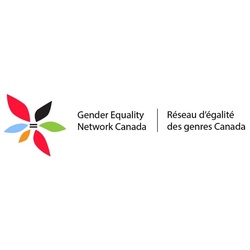
Equality for Sex, Sexual Orientation, Gender Identity and Expression Program
Women and Gender Equality Canada (WAGE)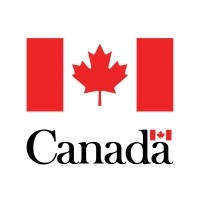
Crime Prevention Action Fund (CPAF)
Public Safety Canada (PSC)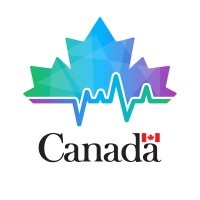
Substance Use and Addictions Program (SUAP)
Health Canada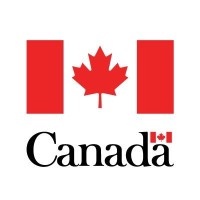
Rail Safety Improvement Program (RSIP) - Research and Education Component
Transport Canada (TC)
Enhanced Road Safety Transfer Payment Program (ERSTPP)
Transport Canada (TC)
Age Well at Home (AWAH) - In-Home Support Pilot Project Stream
Employment and Social Development Canada (ESDC)